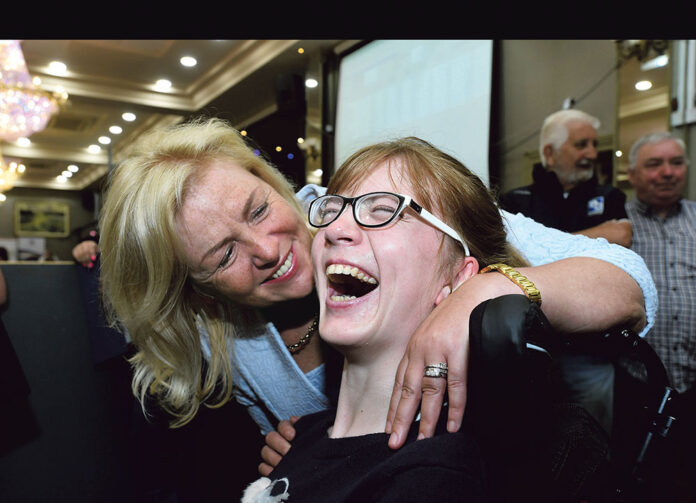SECURING a new motorised wheelchair for a person with disabilities can take up to three years from the initial application, a local health advocate has claimed.
The long waiting times have been criticised as a “disgrace” by Councillor Ann Norton who stated the initial assessment is often out of date by the time a person can actually use the new motorised wheelchair.
Councillor Norton explained it can take two years for the official sign off for a new wheelchair before it is ordered, while the moulding can take between six to eight months once funding has been approved.
She outlined the wheelchair seating assessment is carried out by the Central Remedial Clinic (CRC) in Limerick.
The first assessment conducted by a physiotherapist and occupational therapist establishes if a new wheelchair is needed. If therapists believe a new wheelchair is required, a few appointments may be requiring examining suitable models and types of wheelchairs, moulding and seating before an application for funding can be submitted to the HSE.
The Clare Crusader’s clinic manager recalled she started this process to get a new wheelchair for her daughter, Nicole, who has Cerebral Palsy, last November when an occupational therapist agreed she needed a new wheelchair.
“In the meantime, Nicole’s chair is falling apart and there are bits falling off of it. To repair her wheelchair will cost €3,500. It will be repaired but once problems emerge you will always need a new chair.
“We are waiting to be called for the second consultation and we don’t know how long this will take. I have been told the process could take 18 months to two years to complete and then the assessment will be out of date.
“People with disabilities are waiting for new wheelchairs in wheelchairs that are not fit for purpose.
“Nicole needs a new power wheelchair every two and a half to three years. There is no future planning or thought what clients’ needs are.
“There is no community occupational therapist for anyone with a disability in the county. They are completely understaffed and are being brought from other services..
“A wheelchair is actually like a pair of legs for a person with a disability. People are only getting the bare minimum in terms of aids and appliances,” she claimed.
The long waiting times were raised by Councillor Norton at a recent HSE briefing for Clare County Council.
Mid-West Community Healthcare chief officer, Maria Bridgeman acknowledged access to equipment is an ongoing concern and issue for the Mid-West HSE.
“I have constantly strived to provide additional money into aids, appliances and equipment. It is an ongoing demand as we recruit more staff such as occupational therapists, the demand increases.
“We have allocated significant funding to this area and as late as last Friday I have been working with my finance manager to see if we can allocate more funding to have a stock of equipment that is readily available such as beds and wheelchairs and we are working on that.
I have also raised this matter with the national director that we need funding for aids and appliances.
“We are doing on utmost in relation to that and are working on it all the time.”
Councillor Norton’s concerns are shared by Ann Enright, Quin, who outlined obtaining a new wheelchair can take between two and three years.
Ms Enright believes the whole process needs to be streamlined and made more efficient and user friendly for people with disabilities.
“A person with disabilities can’t function without a wheelchair. If the armrest doesn’t work on a wheelchair, a person may fall out of their wheelchair.
“My daughter, Adah (19), who has Cerebral Palsy, uses her power wheelchair from 7.30am at breakfast until she goes to bed at 9.30pm. Most of her day is spent in her wheelchair, apart from toileting. Having the correct posture and getting the right seating is critical to Adah’s health.”
Ms Enright recalled it took a few months before her latest wheelchair was working properly after it was purchased.
She can’t understand why the HSE can’t provide a wheelchair with a basic chassis and an overall frame so that specialised seating and back rest can be added to suit a person’s individual requirements after an assessment.
She recalled Adah’s current wheelchair cost about €8,500 and the moulded cushioning cost €5,000, which is worth every cent when it is working properly.
Ms Enright appreciates the day service provided for Adah in Enable Ireland in Limerick, but points out there are no respite services available at present.
By Dan Danaher

